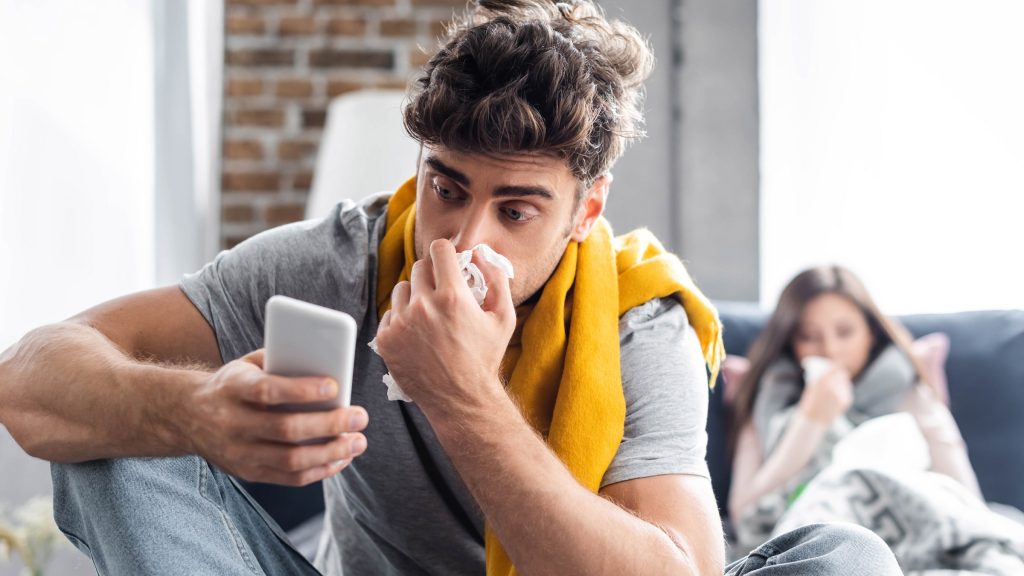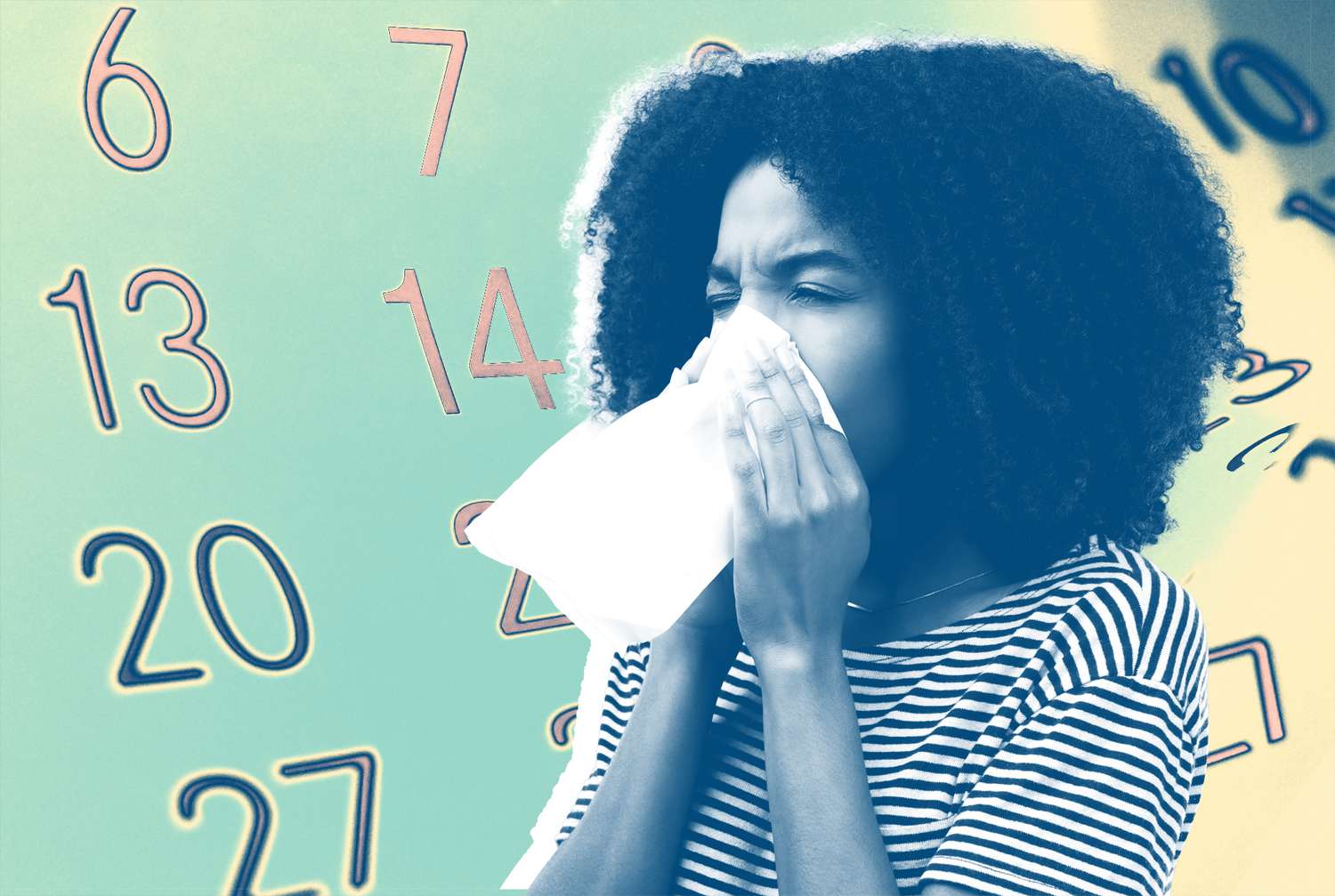How Long Does A Cold Last – Winter is the season of viruses. Each year, the United States records millions of cases of different Infections, including flu and the common cold. In the chaos of COVID-19, flu, and RSV, you should not forget about the common cold and its impacts.
The Centers for Disease Control and Prevention have recently advised Americans to ensure their safety against these infections and viruses. Winter storm has been impacting several states, and it has also left at least 28 dead people.
Thousands of domestic and international flights have been canceled, and millions of people have been impacted. The CDC has been suggesting everyone ensure their safety as they might not be able to find any health services.
The best way to ensure your safety against any virus or infection is the right knowledge. Yes, with the help of knowledge, you can easily prevent the infection and get better within a few days.
That is why today we are here to help you understand everything regarding the common cold period. We will also discuss how long COVID lasts and how you can ensure your safety during the winter storm.
The Incubation Period of the Common Cold
Healthcare experts around the world believe there is a time frame between a person getting exposed to a virus or infection and the start of the symptoms. That time frame is known as the incubation period of the virus.
The common cold is also known to have an incubation period where you won’t start experiencing any symptoms associated with the condition.
Healthcare experts believe there is one to 3 days of the incubation period for the common cold.
There is a high probability that you won’t experience any symptoms associated with a common cold during the first three days of your exposure.
People with low immunity might start developing the symptoms within the first day of exposure. At the same time, people with good immunity might spend three or more days before developing any symptoms associated with the condition.
Healthcare experts believe that You might not experience any symptoms until the 3rd day of your exposure to the virus, but it doesn’t mean that you cannot spread it to others.
If you believe you have been exposed to the virus, then you should make sure you are taking full precautions to contain the spread as much as possible.
At the same time, you can also avoid meeting with anyone who is immune compromised and vulnerable to developing severe symptoms of the common cold.
What is the duration of a Common Cold?
Once you have crossed the incubation period of the common cold, now it is time for you to start experiencing the symptoms associated with the condition.
Every person in the world can have a different duration of common cold, starting from 7 days to 14 days, as per the Centers for Disease Control and prevention of the United States.
Health experts around the world believe that several factors influence the whole duration of the common cold. People with good immunity might be able to get better within 7 to 10 days of the start of the symptoms.
At the same time, people who are immune compromised or struggling with any other medical conditions can experience the symptoms for up to 2 to 3 weeks.
The Centers for Disease Control and Prevention of the United States also believe that lifestyle factors, including the use of cigarettes, can also impact the duration of symptoms.
The symptoms of the common cold can be a little tricky as many of the symptoms can last for more than 3 to 4 weeks, but you will start living your life normally. For example, stubborn mucus and cuffs may last for more than 3 to 4 weeks, but during that time, you will be leaving your life normally.
How Long Does Cold Last in Children?
Health experts around the world believe that the symptoms of the common cold can last a little bit longer when it comes to infection in children.
There is a high probability that symptoms of the common cold can last around 2 to 3 weeks in kids. As you are already aware, the immune system of a child is not as good as the immune system of a full-grown adult.
That is why a kid might experience symptoms for a longer period as compared to a full-grown adult. Apart from that, kids are also vulnerable to developing severe symptoms as they are less aware of preventive habits.

What are the Symptoms of the Common Cold?
The symptoms of the common cold are somewhat similar to several other viruses and infections. For example, most symptoms of the common cold are also associated with the flu and COVID-19.
That is why healthcare experts around the world suggest everyone never opt for self-diagnosis. The Centers for Disease Control and Prevention have divided the symptoms of the common cold into three different sections.
First of all, a person who has been exposed to a common cold will start experiencing the early symptoms of the infection. These early signs or symptoms can begin as early as one day.
There is a high probability that you will start experiencing a scratchy and sore throat. At the same time, your energy levels might also go a little bit low, and you can also experience some fever.
Stage 2 of the common cold is also known as the peak stage. At this stage, the symptoms of the common cold are going to be intense. The time frame of peak symptoms is going to be between the 3rd to 4th day of the start of early symptoms.
Usually, people do not experience any sore or scratchy throat during peak symptoms.
- Running nose
- Wheezing
- Headache
- Cough
- Low-grade fever
- Watery eyes
These are the most common symptoms of a cold. These symptoms usually begin after the 3rd to 4th day of the start of the early symptoms. One of the best parts about the symptoms is that they do not appear suddenly as they grow each day.
After the 5th to 7th day of the start of the symptoms, the symptoms of the common cold will start going down, and you will feel better. First of all, your fever will go away, and you will feel a little bit more energetic.
After that, other symptoms, including headache and runny nose, will start getting better. You won’t suddenly start feeling better, and you might have to consume some medicine to get better from left-out symptoms.
What are the Treatment Options for the Common Cold?
Before we move ahead, let’s take a quick look at the treatment options available for the common cold.
Despite the development in medical science, your healthcare expert will suggest you focus on Rest and Does symptoms. Usually, healthcare experts suggest everyone let the cold run its course.
As you might already be aware, the common cold is caused by a virus, and antibiotics are not going to work on Virus infection. Still, your healthcare expert might suggest you go for some over-the-counter medicines and home remedies to treat the common cold.
There are several over-the-counter pain relievers available that can help you get butter from symptoms like fever, headache, joint pain, and muscle pain caused by the common cold. Medicines like aspirin, Tylenol, and ibuprofen are among the most common medicines for the common cold.
You just have to make sure that you are not giving any over-the-counter medicine to your kid below the age of 18. Healthcare experts do not suggest the use of aspirants can help anyone below the age of 18. There are several medicines available in the market, even as an over-the-counter medicine, that are specially made for children.
Home Remedies for the Common Cold
As you are already aware, your healthcare expert will ask you to focus on some home remedies to get better from the common cold.
- Health experts believe that everyone should try to rest as much as possible to recover from a common cold. While on rest, the immune system will have plenty of time to recover from the common cold.
- Apart from that, you can also stay hydrated, as a high fever can cause hydration.
- You can also try to take some zinc supplements that are known to reduce the length of the common cold. Several studies have proved that zinc supplements are the best when it comes to recovery from the common cold.
- Health experts also suggest using salt water gargling. It can help you ease your sore throat.
- You can also use a humidifier. A humidifier can help you get better from symptoms like nasal congestion and regular cough.
How to prevent the spread of the common cold?
A common cold is also a contagious disease. Healthcare experts suggest everyone avoid any close contact with anyone who has any symptoms associated with the condition. Apart from that, you can also keep using a face mask And hand sanitizer during peak season.
